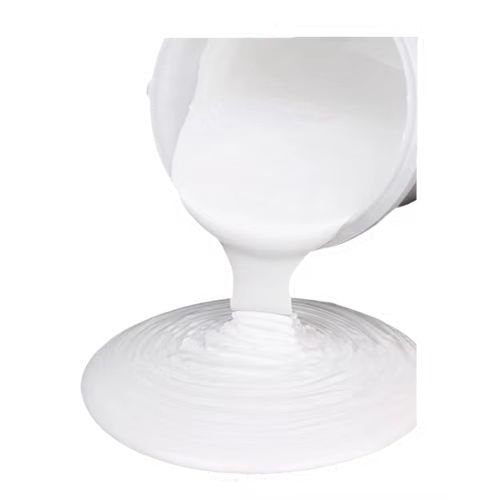Durability and Performance of Aerogel Thermal Insulation in Harsh Environments
As seasons shift from blistering summer heat to freezing winter cold, industrial facilities face a relentless battle against thermal stress.
As seasons shift from blistering summer heat to freezing winter cold, industrial facilities face a relentless battle against thermal stress. Outdoor pipelines, storage tanks, and processing equipment are constantly exposed to fluctuating temperatures, which can compromise operational efficiency and drive up energy costs. For facility managers, ensuring consistent performance throughout the year is a major challenge. This is where advanced materials like the Aerogel block - Thermal Insulation Sheet become essential, offering a stable barrier against the harshest environmental cycles. Finding reliable aerogel for sale is a proactive step toward year-round asset protection.
Table of contents:
Moisture and chemical resistance features of aerogel sheets and pipe insulation
Temperature stability advantages for reactors and turbines using aerogel blocks
Long-term operational benefits of aerogel insulation in new energy installations
Moisture and chemical resistance features of aerogel sheets and pipe insulation
In environments like coastal refineries or chemical processing plants, insulation materials are under constant assault from more than just temperature. Moisture, salt spray, and corrosive chemicals can quickly degrade traditional insulation, leading to a dangerous and costly problem known as corrosion under insulation (CUI). Once materials like fiberglass or mineral wool become saturated, their thermal performance plummets, and the trapped moisture accelerates the corrosion of the steel pipes and vessels they are meant to protect. Leading aerogel manufacturers design their products to combat this specific failure mode. InsulateWool's aerogel sheets and pipe insulation are inherently hydrophobic, meaning they repel water and prevent moisture ingress. This feature ensures that the insulation maintains its thermal conductivity and protects the underlying asset from corrosive damage over its entire service life. Furthermore, its resistance to a wide range of industrial chemicals makes it a durable choice for complex processing environments where spills or vapor exposure are a risk. When procurement managers search for aerogel for sale, they are not just buying thermal performance; they are investing in long-term asset integrity and avoiding the extensive costs associated with CUI remediation.
Temperature stability advantages for reactors and turbines using aerogel blocks
Within power generation plants and petrochemical facilities, maintaining precise temperature control for critical equipment like reactors and turbines is paramount. Even minor deviations can impact process efficiency, product quality, and operational safety. Traditional insulation solutions often require significant thickness to achieve the necessary thermal resistance, creating clearance issues and adding substantial weight to structures. The Aerogel block - Thermal Insulation Sheet, built with revolutionary nanotechnology, provides a superior alternative. Its ultra-low thermal conductivity of 0.015 W/(m·K) means a much thinner profile can deliver exceptional insulation, effectively minimizing heat transfer through conduction, convection, and radiation. For a high-temperature turbine, this translates to better heat retention, improved energy output, and a safer working environment for personnel due to lower surface temperatures. Companies seeking high-performance aerogel for sale for these applications are focused on this level of stability. Reputable aerogel manufacturers understand that consistency is key, producing blocks that perform reliably across extreme temperature gradients. This stability reduces thermal stress on the equipment itself, contributing to a longer operational lifespan and reducing the likelihood of costly, unplanned shutdowns for maintenance.
Long-term operational benefits of aerogel insulation in new energy installations
The new energy sector, with its focus on technologies like lithium-ion battery systems and hydrogen storage, presents unique and demanding insulation challenges. For large-scale battery energy storage systems (BESS), effective thermal management is crucial for preventing thermal runaway, a critical safety concern that can lead to fire and system failure. Similarly, storing liquid hydrogen requires maintaining cryogenic temperatures, a task that demands highly efficient insulation to prevent boil-off and energy loss. Top-tier aerogel manufacturers are developing solutions specifically for these applications. The durability and long service life of aerogel insulation make it an ideal fit for the long-term operational goals of new energy projects. Its resistance to moisture, vibration, and thermal cycling ensures it will not degrade or compact over time, unlike some conventional materials. This reliability minimizes the need for maintenance or replacement, lowering the total cost of ownership throughout the installation's decades-long lifespan. When project developers look for aerogel for sale, they prioritize this long-term value, knowing that the initial investment secures decades of predictable, safe, and efficient operation for their clean energy infrastructure.
Choosing the right insulation is a critical decision that directly impacts operational safety, efficiency, and asset longevity. By specifying an advanced material like an aerogel block, facility operators actively reduce the risks of thermal instability, moisture damage, and premature equipment failure. Insulating critical components with a material boasting an ultra-low thermal conductivity of 0.015 W/(m·K) is not just an upgrade; it is a strategic move to safeguard against unforeseen downtime and maintenance costs.
Contact Us: Hebei Woqin Trade Co., Ltd.
- Phone/WhatsApp: +86 13933929092
- Email: an@cn-aerogel.com
- Website: www.insulatewool.com

Written by - Zhongjian An
Certified Passive House Designer (PHI Germany), validated by Prof. Dr. Wolfgang Feist. With 15+ years of expertise in high-performance solutions for both Green Buildings and Industrial Applications (Petrochemical Pipelines, LNG Cryogenic, & High-Temp Equipment).
LATEST NEWS
Industrial Pipe Insulation: A Strategic Selection Framework Based on Thermal Risk & Asset Integrity
2026-02-03
The 80/20 Engineering Strategy: Solving the Critical 20% of Structural Thermal Bridges for Total Envelope Integrity
2026-02-01
Beyond Logistics: Why 8.115MPa PU & High-Mk Rock Wool is the Only "Risk-Hedged" Solution for Middle East Coastal EPCs
2026-02-01
The Hidden $50k Cost in Your Insulation Bid: Why Thermal Integrity Beats Price Per Meter
2026-01-31
Why 99% of Industrial Insulation Fails at 800°C: The Synergy That Redefines the Thermal Boundary
2026-01-30

